No more Mr. Rice guy: ensuring the literal rice bowl stays full
BY DBS, 17 FEB 2021
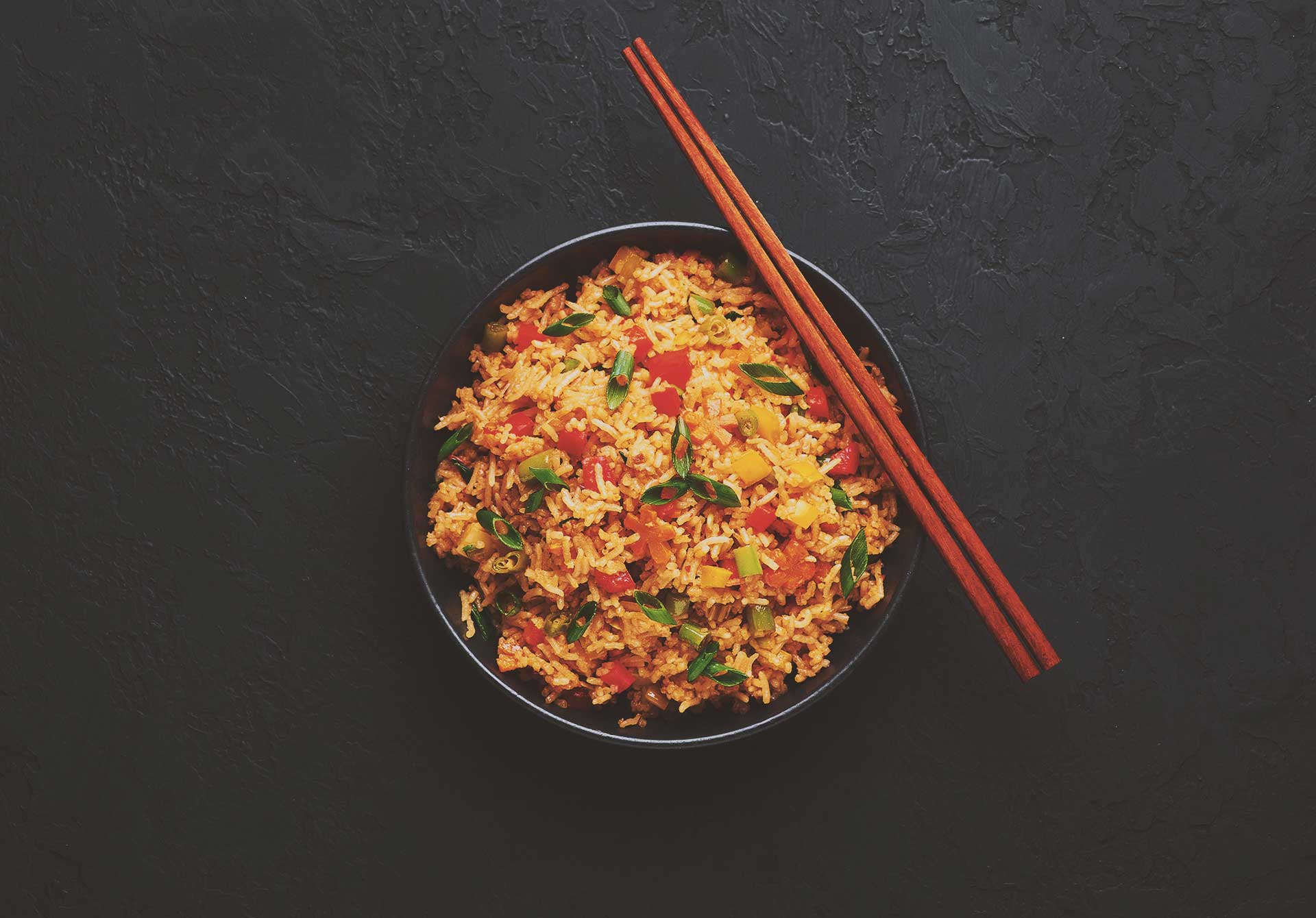
The tale of rice may be a long-forgotten one for us, stuck in-between the pages of our primary school textbooks. But with all the effort, land, water, and energy that goes into its production, how can we afford to forget its value?
Global averages say we’re chucking two bowls of rice daily per person. As much as the delicious grain is available to us in surplus now, the world would face food insecurity even if just Asia stopped producing rice! As a world of rice lovers, what can we do to protect our rice better?
Well here’s a start: Basmati, Jasmine, and White are all common in Singapore, and all three have an indefinite shelf life! That means a good hack or two could give you a lifetime of rice savings. Literally.
By being conscious of our every grain with our cooking, ordering, and eating habits, we’re also helping protect the resources that go into making rice. This includes 40% of the world’s irrigated water!
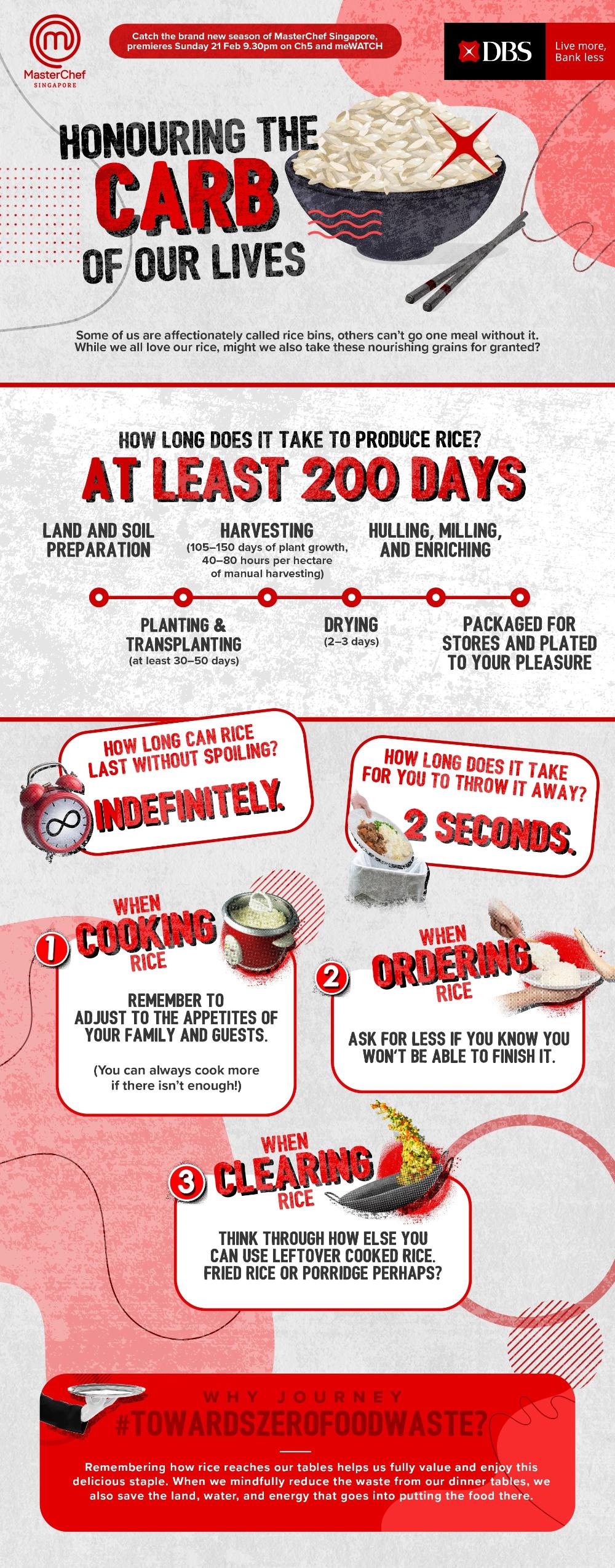
Step one: buying rice sustainably
Yep, sustainable rice is a real thing. What does it even mean? In 2011, the United Nations Environment Programme (UNEP) and the International Rice Research Institute (IRRI) created a platform called the Sustainable Rice Platform.
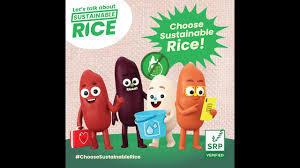
Photo by Sustainable Rice Platform
To put it simply, the platform promotes and approves more than 160 practices for rice farmers. These practices are tailored to increase the global supply of affordable rice while reducing greenhouse gas emissions. As a result, farmers also become more efficient and earn more bang for their buck. Think fair trade.
Companies like Olam, Mars Food, Loc Troi Group, and AMRU all sell rice that is SRP-certified. You can keep a lookout for the green SRP sticker on you rice bags!
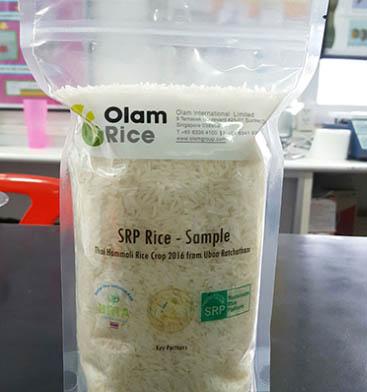
A sample of SRP-certified Olam rice. Photo by Asean Agrifood.
Although, the most sustainable thing to do is to not be tempted by giant bags of rice! Buy smaller quantities to keep your rice from going rancid. You can also begin to buy brown rice, which is less processed, and therefore requires less resources to make.
Step two: storing rice sustainably… with NO WEEVILS
Sure, Basmati, Jasmine, and White rice can ‘live’ forever. But really, it’s how we store our rice that will make or break its longevity. Make sure that your rice is always stored and sealed in a manner that’s airtight.
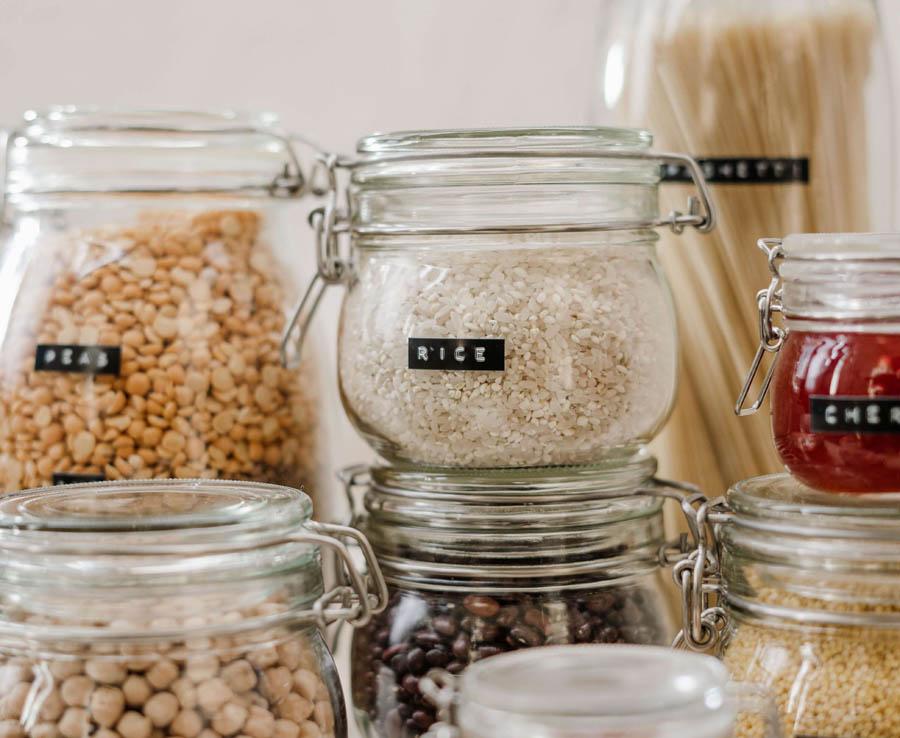
Photo by Cottonbro
Rice absorbs smells and dirt like a sponge, so make sure that your container is squeaky clean – but neutral smelling. If your container smells of soap, so will your rice!
But even an airtight container won’t stop existing weevil eggs from hatching in your rice. The best way to avert a weevil crisis is by putting your rice in the freezer for 4-5 days. The freezer treatment will kill any existing insects in your rice, and their eggs. If those pesky little bugs have already crawled into your rice, spread your grains out on a large mat near a window where the sun hits. The heat will make them bugger out of there in no time!
Step three: can you even cook rice sustainably?
The answer is yes. If you’re fond of using a rice cooker, there’s a chance you’re harming the environment. If your rice cooker has a Teflon coating, it can release harmful chemicals into the environment when its surface gets scratched. It can also leach itself into your food!
Consider other materials to cook your rice, such as stainless steel, ceramic, or clay. These materials are available in rice cookers, or in pots if you want to cook your rice on a stove. You should also keep things energy-efficient and only buy a rice cooker that’s the right size for your family.
The greatest step: keep things within your control
Responsible food production doesn’t have to begin and end at home. When you’re dining out, ask for smaller portions if need be – only as much as you can finish. If you know you can handle only one bowl of rice, ask for just that amount, in case the server decides to pile it on.
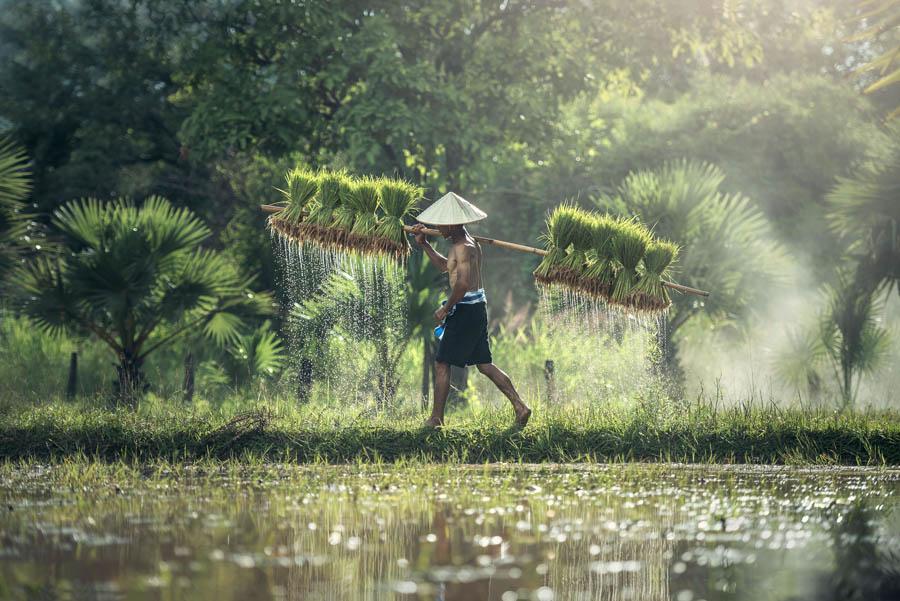
You can also support companies like Siam Organic, which won the DBS-NUS Social Venture Challenge Asia 2016. Siam Organic is working with more than 1,000 small-scale farmers to distribute organic products to the world and the U.S., where organic products are all the rage. With the support of consumers who buy sustainably farmed products, these farmers now earn more than 14 times more than the average Thai rice farmer!
As one of the main sponsors of MasterChef Singapore Season 2, DBS shines a spotlight on how we can each reduce our food waste in the kitchen.
Learn more about how you can continue your journey #TowardsZeroFoodWaste.
Find out more about DBS’ other partnerships and initiatives #TowardsZeroFoodWaste.
Join us for tips to make your daily life more convenient, especially in ways that contribute to a more sustainable future!